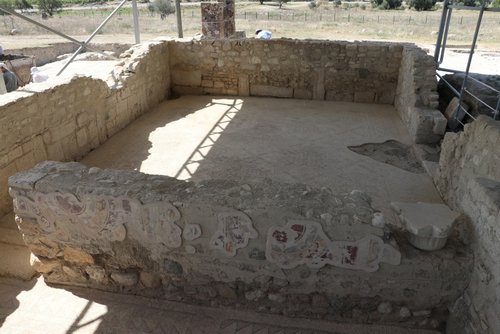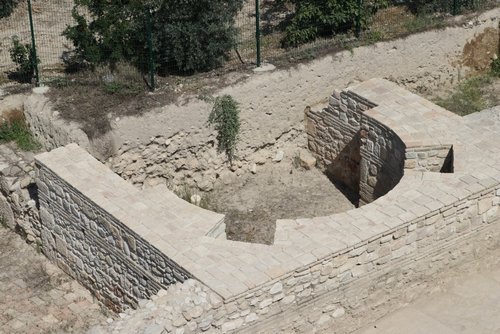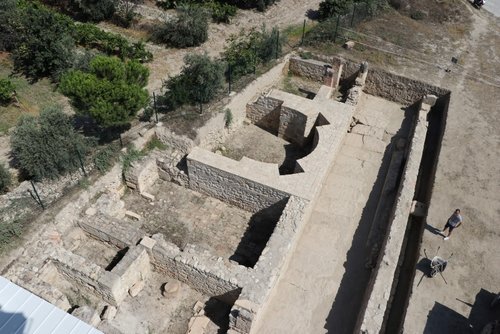A sexennial excavation uncovered a 2,000-year-old villa, decorated with mosaic and fresco in western Turkey.
The villa, comprising 12 rooms, was discovered in Buldan district of Tripolis Ancient City in the southwestern province of Denizli, said Bahadir Duman, head of the excavation team and professor of archeology at Pamukkale University.
In six years of excavations at the site, the team of 35 people discovered that the villa, estimated to be 2,000 years old, was ornamented with mosaic, fresco and geometric figures with botanic images.

"The first construction phase of this villa with mosaic ornamentation starts in the late Hellenistic period. We can say that the first construction phase dates back to 2,000 years," Duman told Anadolu Agency.
Duman said the owner of the villa is supposed to be a merchant in agriculture, citing the floor covering of the rooms with mosaic and colorful fresco and geometric figures, and with botanic images on the walls.

A large bath, toilet, living room, as well as bedrooms were also unearthed during the excavation, Duman added.
"We found an area where various liquids such as perfume and olive oil were stored in the house. So it is possible that it was a family dealing with those items," he said.

Also shedding light on the ongoing excavation, the Dumman said there is a neighboring house on 600 square meter area.
"There are houses belonging to separate individuals. We assume that we will unearth the neighbor in three or four years," Duman said.